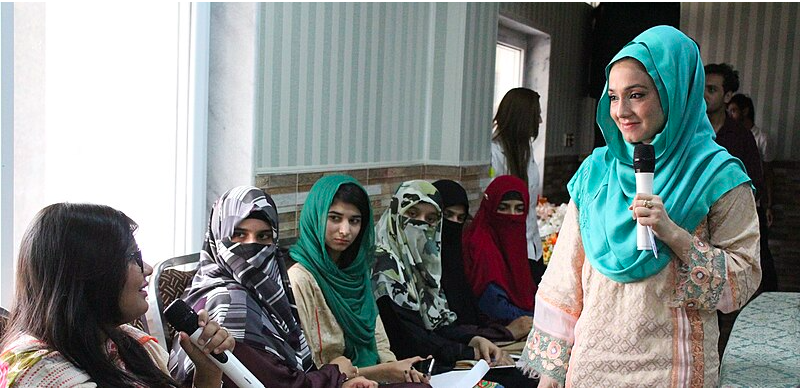Mental Health Stigma in MENA

By: Raisa Sami / Arab America Contributing Writer
In the Middle East and North Africa, stigma around mental health has been a major problem. Many individuals avoid talking about it out of social pressure and fear of being judged. Women are especially vulnerable to this stigmatization as they are frequently silenced because of abusive sexual and physical acts, strict gender norms, social and political exclusion, and conservative communities. As a result of their experiences, a significant percentage of women suffer from mental health conditions such as PTSD, anxiety, and depression. In Arab culture, the family is considered fundamental, offering both material and emotional support as well as serving as the first line of defense against social and economic difficulties.
The Arab world still lacks the fundamental understanding to recognize mental health as a disease, even in the face of increased global awareness of mental health issues. According to the 2020 Arab Youth Survey, 38% of participants know someone who is experiencing anxiety or depression. Furthermore, according to 56% of Arab youth, getting access to high-quality medical care for mental health issues in their nation is challenging. Young Syrians, Yemenis, and Palestinians also mentioned having trouble getting mental health care. Almost half of Arab youth believed that getting mental health treatment was frowned upon in their nation.
Mental health is socially stigmatized the most in Morocco (76%), Lebanon (72%), and Libya (70%). Given that 65% of Arabs are under 30, the results of this survey highlight the significance of mental health interventions. But instead of addressing this problem head-on, Middle Eastern and North African nations primarily cut back on their spending on mental health services.
Many MENA nations have tried in recent years to address the underutilization of mental health services by decentralizing psychiatric units into general hospitals, offering training courses to medical staff, and launching public awareness campaigns. Nations like war-torn Syria, the United Arab Emirates, Qatar, and Saudi Arabia are striving to stop stigmatizing mental health disorders and place them front and center.

To provide integrated mental health services for Qatari citizens, the Ministry of Public Health in Qatar introduced a mental health strategy in 2013. The strategy had four main goals: enhancing mental health leadership and governance, promoting mental health and prevention, offering comprehensive services, and improving information systems, research, and evidence-based practice. One of the 16 priority areas for Qatar’s public health agenda from 2019 to 2022 is mental health.
Regular actions are taken by the UAE government to address mental health concerns and lessen the stigma associated with them. Five main strategic objectives are identified by the National Policy for the Promotion of Mental Health in the UAE: increasing the efficacy of raising awareness of mental health issues and lowering stigma; creating, bolstering, and integrating responsive mental health services for patients of all ages; enhancing multisectoral collaboration to carry out mental health promotion policy; encouraging the prevention of mental health disorders for all ages; enhancing capacities and improving information systems; conducting mental health research to develop their services; fostering positive dialogue about mental health and wellbeing; cooperating with key stakeholders to ensure high-quality mental health services; building the data system effectively. Every year on October 10th, Dubai’s Health Authority observes World Mental Health Day.
The World Health Organization estimates that 1 in 10 people in Syria have a mild to moderate mental health condition, and 1 in 30 have a more severe condition. In the Arab world, 17.7% of people suffer from depression. In addition to increasing community-based strategies, WHO and its partners have decentralized mental health care. For example, over 540 primary healthcare centers in Syria now offer integrated mental health care through the work of qualified physicians and other health professionals.
Saudi Arabia has made significant strides in improving its mental healthcare since 1983, with the establishment of the General Department for Mental and Social Health (GDMSH) to address the country’s mental health crisis. The GDMSH modernizes psychiatric facilities and provides well-trained staff for mental healthcare institutions. In 2014, the Saudi government established a Mental Health Law, collaborating with the World Health Organization to generate data on mental health services. Saudi Arabia has a 55% ratio of psychiatric nurses to mental healthcare professionals, which is 37% higher than most developed countries.
References:
Check out our Blog here!








